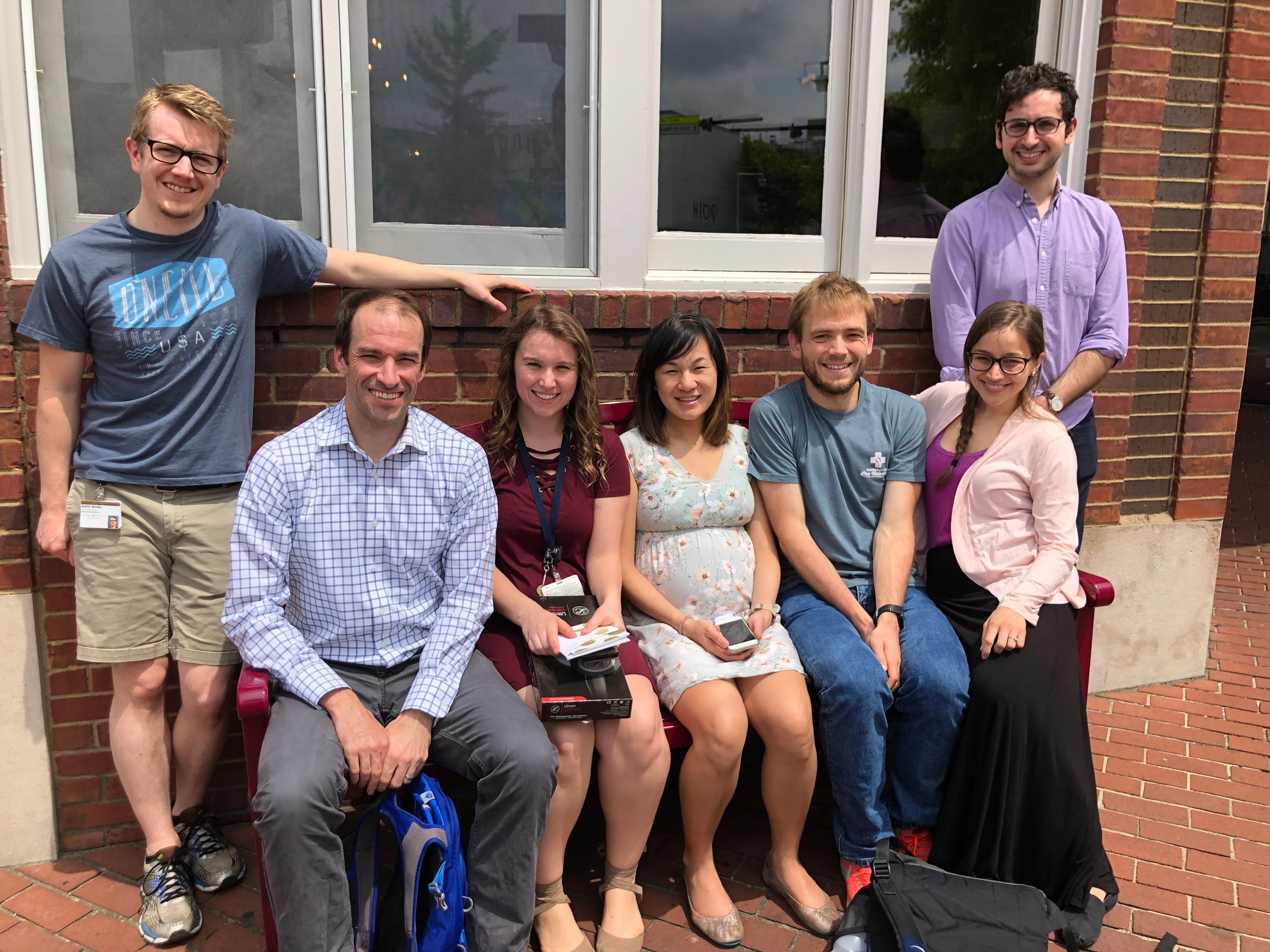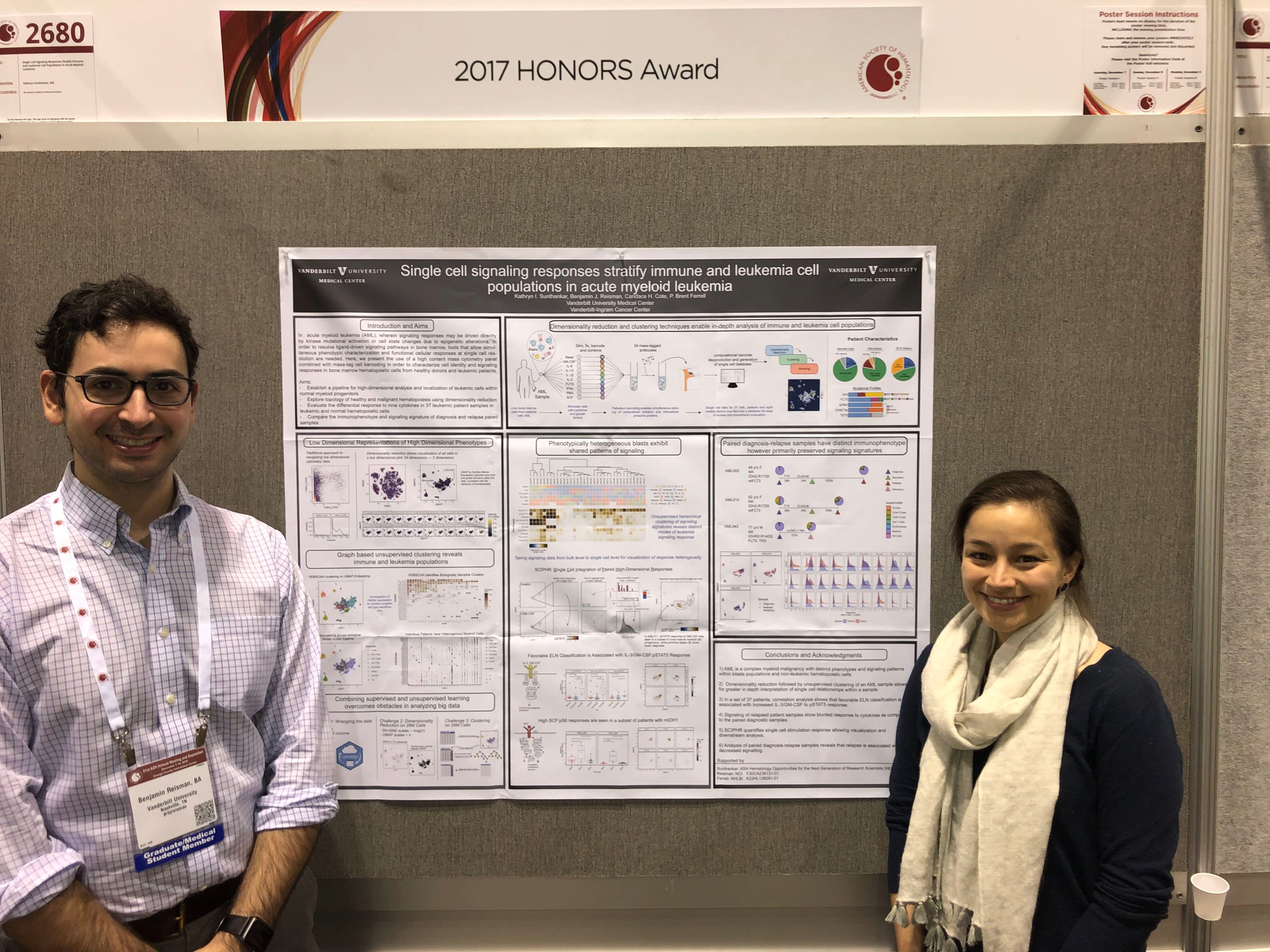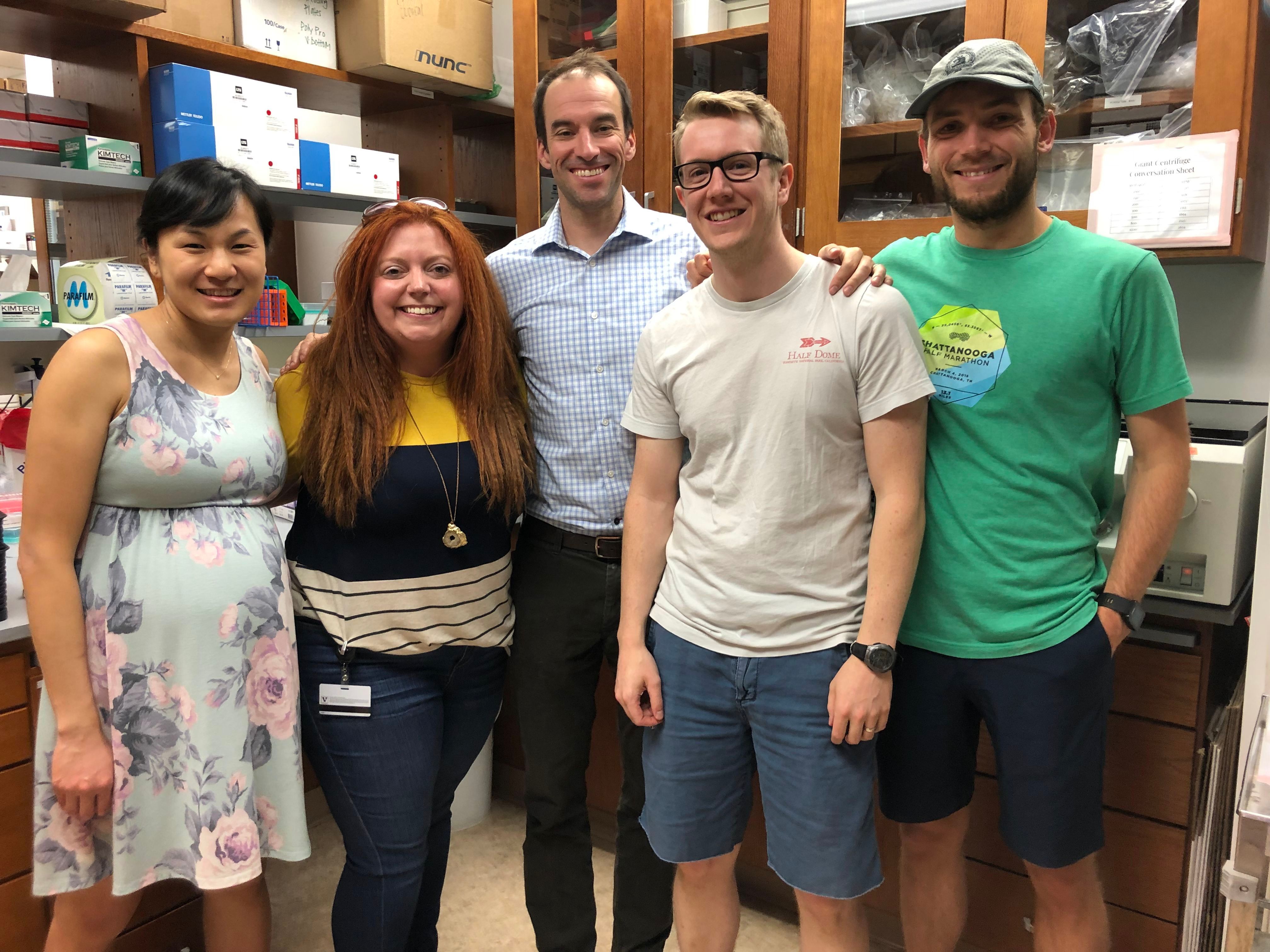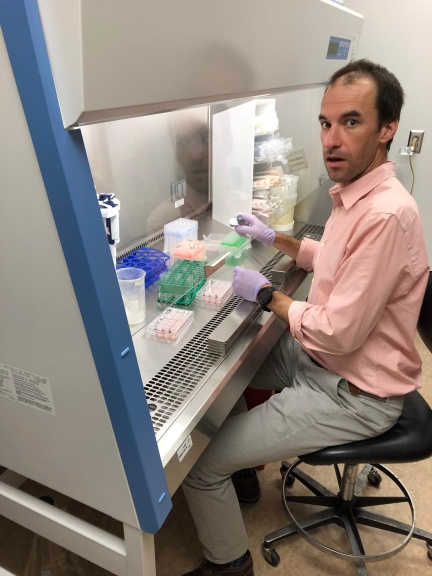Brent Ferrell received his M.D. from the University of North Carolina School of Medicine, Chapel Hill, North Carolina. He joined the Irish lab in 2012 as a Fellow in Vanderbilt’s Tinsley R. Harrison Society physician-scientist training program and became Instructor of Medicine in 2015. In 2017, Brent received NIH/NHLBI K23 HL138291, was promoted, and started his own lab as Assistant Professor of Medicine at Vanderbilt University Medical Center.
When you were 5, what did you want to be when you grew up?
I don't remember for sure, but I think pretty early I wanted to be a professional tennis or soccer player. That morphed into a doctor pretty quickly when I realized where I stood in the talent department.
How/When did you decide to become a scientist?
I always liked science, but I never really thought I would do it for a job. In college, I was a philosophy major; in part because I enjoyed reading and thinking about fundamental questions, but also in large part because I realized being a chemistry major meant I would be in labs for a large chunk of my afternoons – and that didn't seem like much fun. I really enjoyed cell biology, genetics, and immunology in the early years of medical school, but as soon as you get comfortable with a subject in medical school, you are jolted on to the next. I had the sense that I wanted to slow down and think a little about what we were learning, but there wasn't much time for that in the traditional med school curriculum. Soon, I was taking care of acute myeloid leukemia (AML) patients in the hospital during my third year of medical school, and I knew I wanted to help those patients and study that disease. Scientifically, it's fascinating, but for the patient, it's devastating. Once I finished my medical training, I dida postdoc in the lab of Jonathan Irish, learning how to apply novel single cell techniques to the study of human AML and related disorders, like myelodysplastic syndrome. I have had my own lab for almost 3 years, but I suppose I am still becoming a scientist.
How long have you been with VUMC?
I've been here for 11 years, yikes!
What is one topic in your field that you are excited about right now?
I think single cell multiomic approaches, including proteogenomics, will massively advance our understanding of genotype/phenotype relationships in leukemia. Further the ability to interrogate cancer cells and immune cells simultaneously with single cell approaches will provide new insights regarding their interactions.
What does your lab do/study?
Broadly, we study myeloid malignancies, including myelodysplastic syndrome and acute myeloid leukemia. Given the site of origin of these cancers, we also study bone marrow immunology and hematopoiesis.
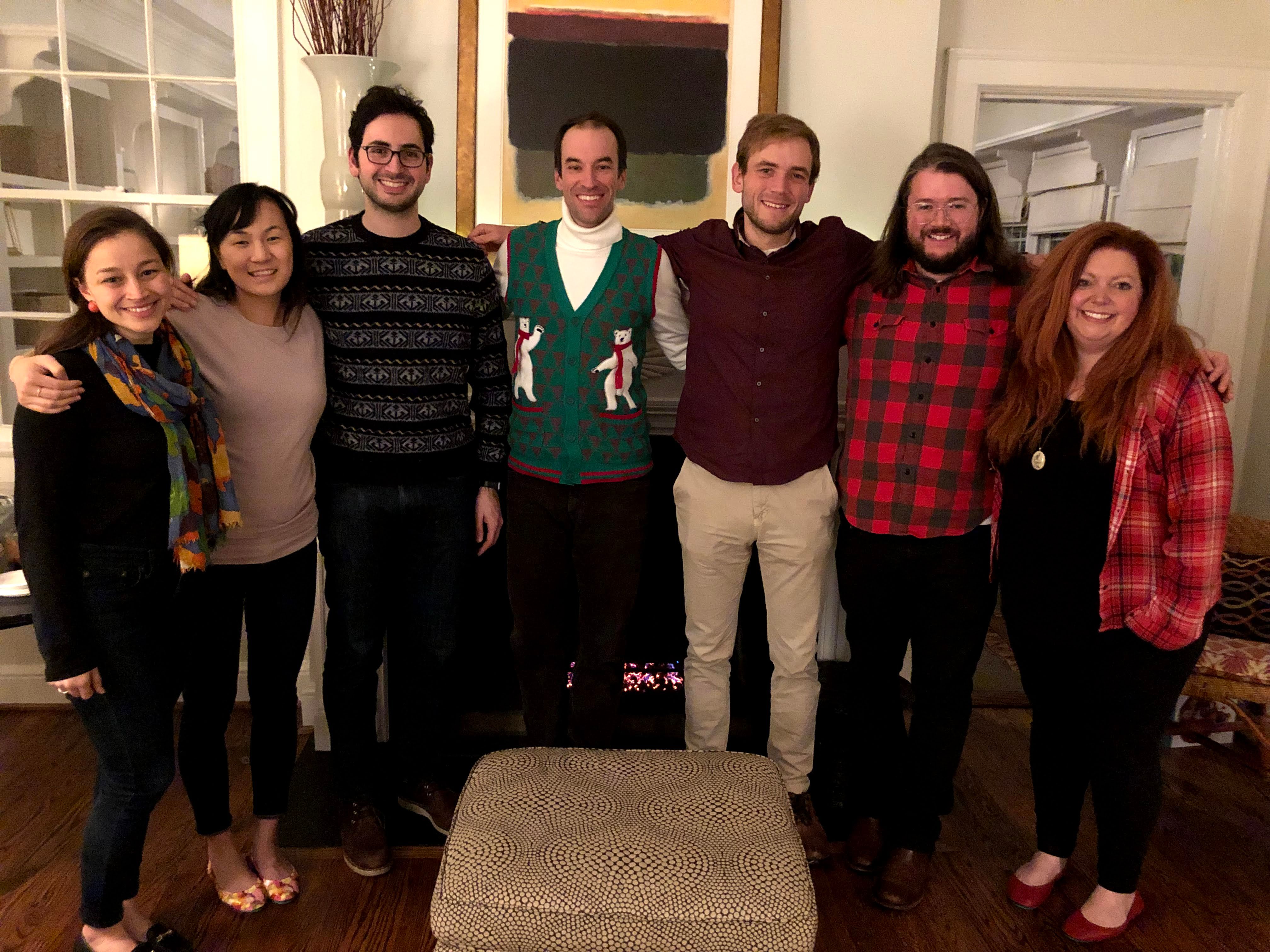
L to R: Katie Sunthankar, MD, Yan Li, MD, Ben Reisman (friend of the lab!), Brent Ferrell, MD, Matt Jenkins, Chad Potts, Tiffany Guess, PhD
Give a good recent article to read that's related to your field of study.
There are so many, but this one I read today. A really cool example of using both large data sets and focused single cell analyses to make discoveries. It includes a lot of our favorite things. Immunogenomic Landscape of Hematological Malignancies
This preprint is one that we have talked about a lot in the lab as well. It is a large cohort of myeloid malignancy samples, mostly AML, dissected with single cell DNA sequencing. It describes the underlying clonal architecture and heterogeneity in these cancers. It builds on themes the field has known about, but now sees with better clarity. This work is also similar to some of our projects in the lab. Single cell mutational profiling delineates clonal trajectories in myeloid malignancies.
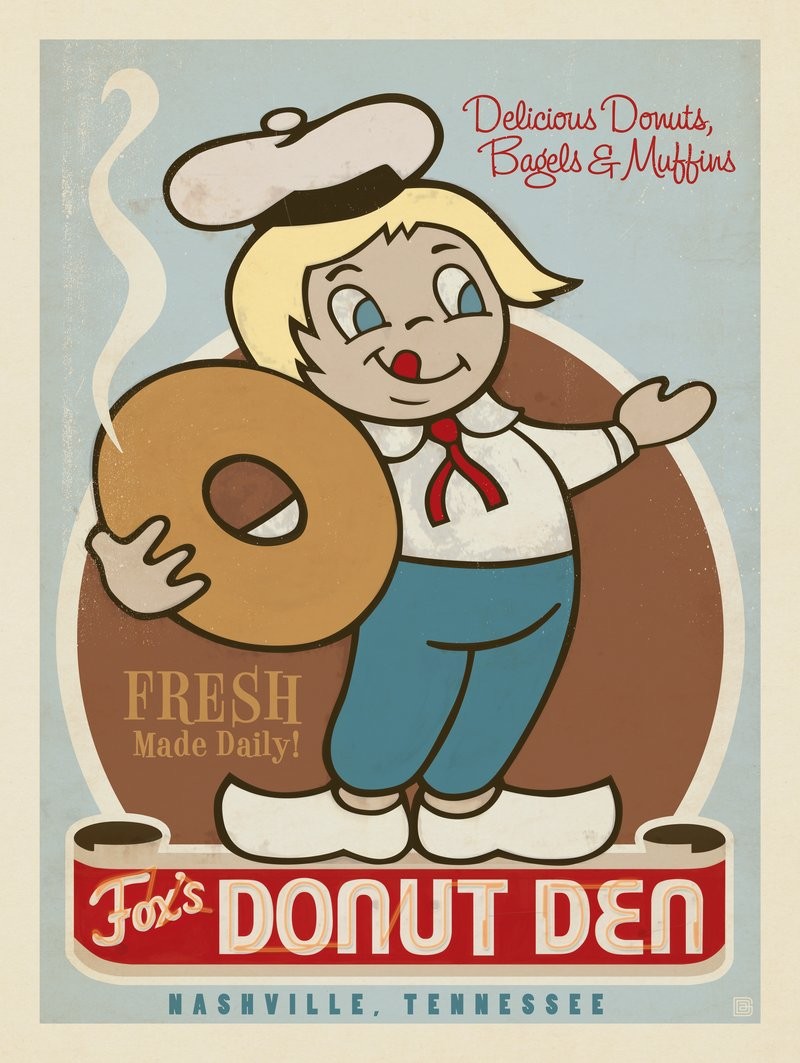
Favorite place for donuts?
Fox's Donut Den!
Favorite "safer at home" activity?
I have enjoyed playing a lot of basketball, Catan, and Monopoly Deal with my two sons.
One tip for striking a good work-life balance.
One thing I find helpful is to time block my work day. Give each work hour a job, plan in advance, instead of continuously pulling from a long "to do" list. Also, "unplug" during non-work hours.
Ferrell Lab out and about!
